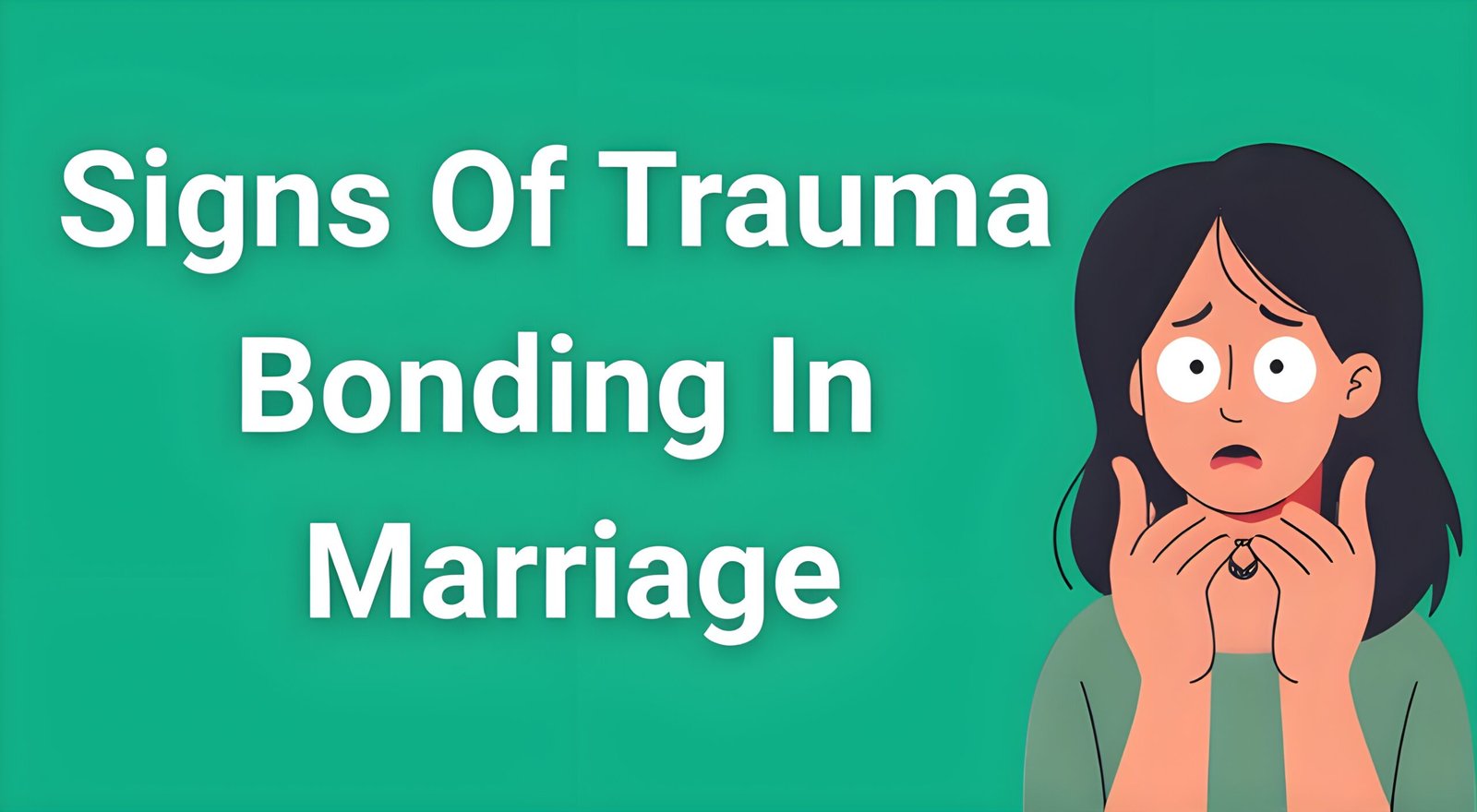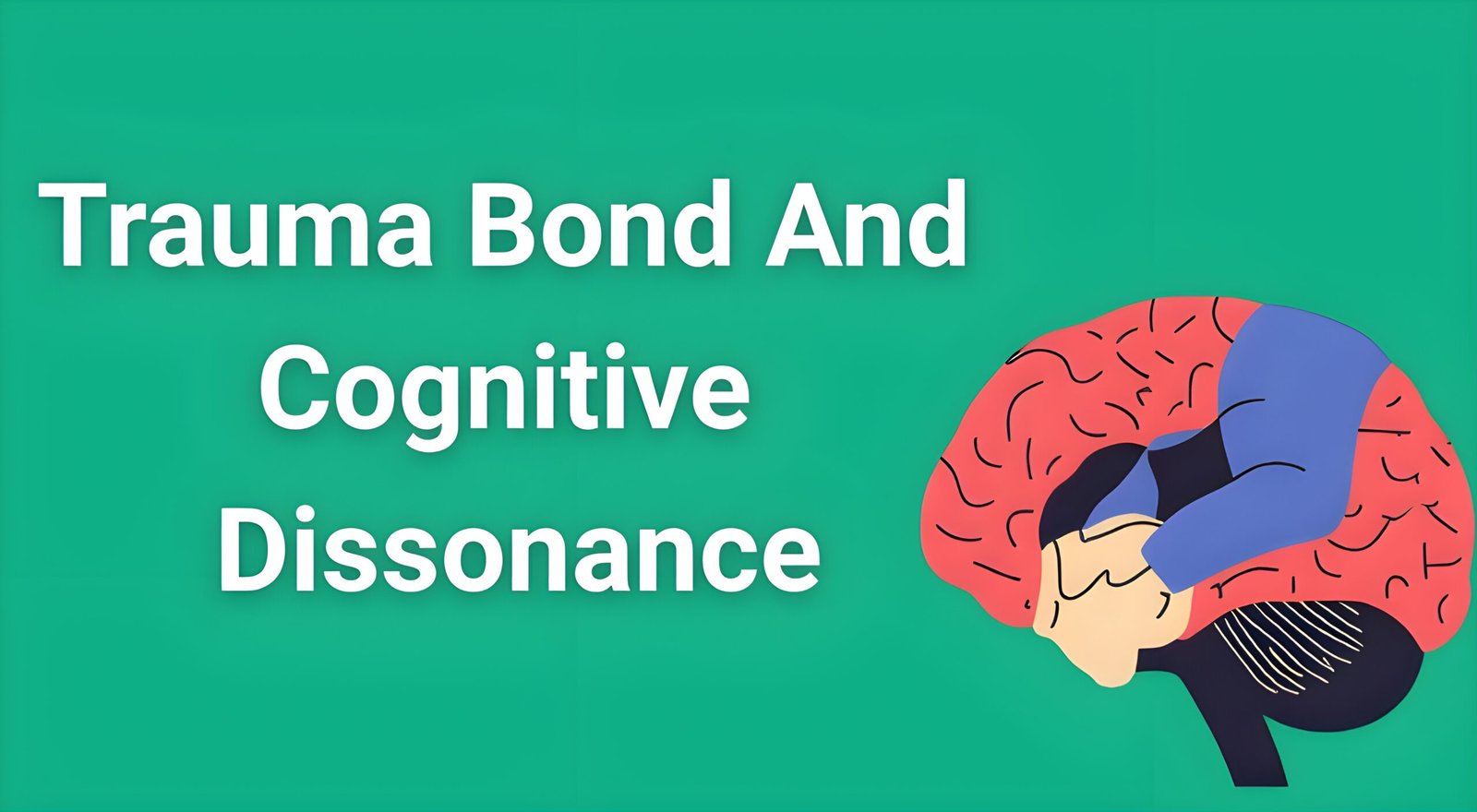Does your marriage feel more like an emotional rollercoaster than a loving partnership? If you’re constantly walking on eggshells, making excuses for your spouse’s behavior, or feeling unable to leave despite being unhappy, you might be experiencing signs of trauma bonding in marriage. This psychological phenomenon goes far beyond typical relationship challenges and can trap even the strongest individuals in cycles of confusion and pain.
- What Is Trauma Bonding in Marriage?
- The 12 Critical Signs of Trauma Bonding in Marriage
- Why Trauma Bonding Happens in Marriage
- The Neurological Impact of Trauma Bonding
- Breaking Free: Your Path Forward
- When Professional Analysis Can Provide Clarity
- Creating Your Safety Plan
- The Recovery Process: What to Expect
- Long-term Healing and Prevention
- Frequently Asked Questions About Trauma Bonding in Marriage
- Conclusion: Your Freedom Is Possible
Trauma bonding in marriage isn’t about weakness or poor judgment—it’s about how our brains respond to cycles of abuse and affection. When you understand these patterns, you can finally make sense of why leaving feels impossible and take the first steps toward clarity and healing.
What Is Trauma Bonding in Marriage?
Trauma bonding occurs when you develop a strong emotional attachment to someone who causes you harm through cycles of abuse followed by affection or reconciliation. In marriage, this creates a powerful psychological trap where your brain interprets the relief after conflict as love, making it nearly impossible to recognize or escape the pattern.
Unlike healthy marital bonds built on mutual respect and consistent care, trauma bonds form through intermittent reinforcement—the psychological principle that makes gambling addictive. Your spouse might be cruel, then suddenly kind, creating neurological pathways that crave the relief and connection that follows pain.
This isn’t a character flaw or sign of weakness. Trauma bonding hijacks your nervous system, making you feel like you need this person to survive, even when logic tells you otherwise. Understanding this can be the first step toward reclaiming your sense of reality and self-worth.
The 12 Critical Signs of Trauma Bonding in Marriage
1. You Constantly Walk on Eggshells Around Your Spouse
One of the clearest signs of trauma bonding in marriage is the persistent feeling that you must carefully monitor your words and actions to avoid triggering your partner’s anger or withdrawal. You find yourself analyzing their mood before speaking, choosing your words carefully, and often staying silent to “keep the peace.”
This hypervigilance isn’t normal in healthy marriages. While all couples need to be considerate of each other’s feelings, you shouldn’t feel like you’re navigating a minefield in your own home. When you’re trauma bonded, this constant state of alert feels necessary for emotional or physical safety.
2. You Make Excuses for Their Abusive Behavior
Do you find yourself explaining away your spouse’s harmful actions to friends, family, or even yourself? Common justifications include “They’re just stressed from work,” “They had a difficult childhood,” or “They don’t mean it when they’re angry.”
This rationalization is a hallmark of trauma bonding. Your brain works overtime to make sense of why someone who claims to love you would hurt you. Making excuses feels easier than accepting the painful reality that your partner’s behavior is abusive and not your responsibility to fix or explain away.
3. You Feel Addicted to the “Good Times” in Your Marriage
Trauma bonding creates a neurological addiction to the cycle itself. The relief and joy you feel during your spouse’s moments of kindness become incredibly powerful because they follow periods of tension or cruelty. These “good times” feel more intense than love in healthy relationships because your nervous system interprets survival as pleasure.
If you find yourself clinging to brief moments of connection while enduring long periods of emotional distance or abuse, this addiction pattern may be controlling your decision to stay. You’re not weak for craving these moments—your brain is responding exactly as it’s designed to in these circumstances.
4. You’ve Lost Touch with Your Own Reality and Memories
Gaslighting is often central to trauma bonding in marriage. Your spouse may deny events you clearly remember, claim conversations never happened, or insist you’re “too sensitive” or “overreacting.” Over time, you begin questioning your own perceptions and memories.
This psychological manipulation serves to increase your dependence on your partner’s version of reality. When you can’t trust your own judgment, you become more likely to rely on them for understanding what’s “really” happening in your relationship. This is one of the most damaging signs of trauma bonding because it erodes your sense of self at the deepest level.
5. Your Friends and Family Express Concern About Your Marriage
People who love you can often see trauma bonding patterns more clearly than you can. If multiple trusted friends or family members have expressed worry about how your spouse treats you or how you’ve changed since marriage, this outside perspective deserves serious consideration.
Healthy relationships generally receive positive feedback from loved ones. When trauma bonding is present, others often notice changes in your personality, increased anxiety, social withdrawal, or concerning dynamics they witness between you and your spouse. Their concerns aren’t interference—they’re reflections of observable changes in your wellbeing.
6. You Feel Responsible for Your Spouse’s Emotions and Actions
In trauma bonded marriages, you likely feel responsible for managing your partner’s emotional state and preventing their outbursts. You might think, “If I had just been more understanding,” or “I know exactly what sets them off, so I should have avoided that topic.”
This hyper-responsibility is a trauma response, not a natural part of marriage. While healthy couples support each other emotionally, you shouldn’t feel responsible for preventing another adult’s inappropriate behavior. When trauma bonding is present, this misplaced responsibility keeps you focused on changing yourself rather than recognizing the need for them to change their behavior.
7. You Can’t Imagine Life Without Them Despite Being Unhappy
One of the most confusing signs of trauma bonding in marriage is feeling unable to envision life without your spouse, even when you acknowledge the relationship makes you miserable. This isn’t love—it’s psychological dependence created by the trauma bonding cycle.
Your brain has adapted to the chaos and intensity of the relationship, making calm or stable relationships feel boring or “wrong.” The thought of leaving triggers panic not because you’d miss genuine love and companionship, but because your nervous system has become addicted to the familiar pattern of tension and relief.
8. You Prioritize Their Needs While Neglecting Your Own
Trauma bonding teaches you that your value comes from meeting your partner’s needs, often at the expense of your own wellbeing. You might cancel plans with friends to avoid upsetting them, give up hobbies they disapprove of, or constantly adjust your behavior to accommodate their preferences.
This self-neglect isn’t selfless love—it’s a trauma response designed to maintain safety in an unsafe relationship. In healthy marriages, both partners’ needs matter equally, and compromise happens naturally without one person consistently sacrificing their wellbeing for the other’s comfort.
9. You Experience Physical Symptoms of Chronic Stress
The constant vigilance required in trauma bonded marriages takes a severe toll on your body. You might experience headaches, digestive issues, sleep problems, muscle tension, or a weakened immune system. These physical symptoms reflect the chronic stress of living in survival mode within your own marriage.
Your body is responding appropriately to an unsafe environment. When signs of trauma bonding in marriage include these physical manifestations, it’s your nervous system’s way of signaling that something is fundamentally wrong, even when your mind might be struggling to accept this reality.
10. You Feel Isolated from Your Support System
Isolation often occurs gradually in trauma bonded marriages. Your spouse might directly discourage relationships with friends or family, or you might withdraw from others because you’re ashamed of your situation or tired of making excuses for your partner’s behavior.
This isolation serves the trauma bonding process by making you more dependent on your spouse for emotional connection and reality testing. When you have fewer outside perspectives and sources of support, it becomes much harder to recognize unhealthy patterns or find the strength to make changes.
11. You Believe You Can Fix or Change Your Spouse
If you find yourself constantly hoping your spouse will return to the person they were during the early relationship or believing that your love and patience will eventually change their behavior, you’re likely experiencing trauma bonding. This hope keeps you invested in a harmful dynamic while focusing your energy on changing someone else rather than protecting yourself.
The person your spouse was during the initial “honeymoon phase” was likely a persona designed to create attachment. The behavior you see now is more likely their authentic self when they feel secure in their control over you. Real change requires acknowledgment of problems and consistent effort over time—not just promises during moments of consequence.
12. You Experience Intense Fear About Leaving the Marriage
Even when you logically recognize signs of trauma bonding in marriage, the thought of leaving might trigger overwhelming fear and panic. This fear goes beyond normal concerns about divorce and extends to feeling like you physically or emotionally cannot survive without this person.
This fear is a direct result of trauma bonding—your brain has been conditioned to believe your survival depends on maintaining this relationship. The intensity of this fear doesn’t indicate how much you truly love your spouse; it indicates how successfully the trauma bonding cycle has created psychological dependence.
Why Trauma Bonding Happens in Marriage
Understanding why trauma bonding occurs can help you recognize that experiencing these patterns doesn’t reflect your character or intelligence. Trauma bonding develops through several key psychological mechanisms that can affect anyone under the right circumstances.
The intermittent reinforcement schedule creates the strongest form of psychological conditioning. When kindness follows cruelty unpredictably, your brain releases powerful neurochemicals during the relief periods, creating an addiction-like response to the cycle itself. This is the same mechanism that makes gambling so addictive—the uncertainty of when the “reward” will come makes it more compelling than consistent positive treatment.
Additionally, many people who develop trauma bonds in marriage have histories of childhood trauma or inconsistent caregiving. If you learned early that love comes with conditions, unpredictability, or pain, these patterns might feel familiar rather than alarming. Your nervous system recognizes the intensity as connection, even when that connection is harmful.
The gradual nature of trauma bonding also makes it difficult to recognize. Abusive behavior typically escalates slowly, with each boundary violation slightly pushing the limit of what feels acceptable. By the time severe mistreatment occurs, you’ve already adapted to lower levels of respect and care, making it harder to recognize how far the situation has deteriorated.
The Neurological Impact of Trauma Bonding
Recent neuroscience research reveals that trauma bonding literally changes your brain structure and function. The chronic stress of these relationships affects the hippocampus (memory processing), prefrontal cortex (decision-making), and amygdala (threat detection), making it genuinely difficult to think clearly or make rational decisions about your situation.
This neurological impact explains why willpower alone rarely breaks trauma bonds. Your brain has adapted to survive in this environment, creating neural pathways that reinforce staying rather than leaving. Understanding this can help you approach healing with more compassion for yourself and recognition that breaking free requires specific strategies that work with your brain’s trauma responses rather than against them.
Breaking Free: Your Path Forward
Recognizing signs of trauma bonding in marriage is the crucial first step toward reclaiming your life, but it’s rarely sufficient on its own. Breaking trauma bonds requires understanding, strategy, and often professional support because you’re working against powerful neurological and psychological forces.
The process typically involves several stages: stabilizing your nervous system, rebuilding your connection to reality and personal values, developing safety strategies, and gradually reducing emotional dependence on the trauma bonding cycle. This isn’t a simple process, but thousands of people successfully break free from these patterns every year.
Many people find that specialized resources designed specifically for trauma bonding recovery provide the structured approach needed for lasting change. For instance, comprehensive workbooks like the “30 Day Trauma Bond Recovery Workbook” offer day-by-day guidance through the neurological rewiring process, helping you understand why willpower alone fails and providing science-based techniques that actually work.
If you’re still living with your spouse and can’t leave immediately, resources focused on surviving while you’re still in the situation can be invaluable. The key is understanding that your current attachment patterns aren’t permanent—with the right information and support, you can rewire your responses and regain your freedom of choice.
When Professional Analysis Can Provide Clarity
Sometimes the most helpful step is getting an objective, professional assessment of your specific situation. Many people struggling with trauma bonding feel confused about whether their experiences actually constitute abuse or if they’re overreacting to normal relationship challenges.
Professional analysis can provide the validation and clarity needed to move forward with confidence. Services like personalized narcissistic abuse assessments can help you understand exactly what you’re dealing with, why you feel so confused, and what specific steps make sense for your situation.
The value in this approach is getting answers tailored to your specific circumstances rather than trying to piece together general information and hoping it applies to your situation. When you’re dealing with trauma bonding, your judgment about your own situation is often compromised, making professional perspective invaluable.
Creating Your Safety Plan
Whether you’re planning to leave your marriage or working to survive while you can’t leave yet, having a safety plan is crucial. This includes both practical elements (financial resources, safe places to stay, important documents) and emotional safety strategies (techniques for managing panic, maintaining your sense of reality, protecting your mental health).
Your safety plan should also include building or rebuilding your support network. Trauma bonding often involves isolation, so reconnecting with trusted friends, family members, or support groups becomes part of the recovery process. Many people find that connecting with others who understand trauma bonding provides validation and practical guidance that general relationship advice cannot offer.
The Recovery Process: What to Expect
Breaking trauma bonds follows a predictable pattern, though the timeline varies significantly between individuals. Initially, you might experience what feels like withdrawal symptoms—anxiety, obsessive thoughts about your spouse, physical symptoms of stress, and intense urges to reconnect or return to familiar patterns.
This is normal and temporary. Your nervous system is adjusting to the absence of the intense stimulation it had adapted to survive. Understanding that these symptoms are part of healing rather than evidence that you’ve made a mistake can help you persist through the most difficult early stages.
As your nervous system stabilizes, you’ll likely experience periods of grief for the relationship you thought you had, anger at the deception and manipulation, and gradual reconnection with your authentic self. Many people describe this process as “waking up” from a dream or fog that had surrounded their perception for months or years.
Long-term Healing and Prevention
Successfully breaking trauma bonds involves more than ending the harmful relationship—it requires understanding what made you vulnerable to this pattern and developing the skills to recognize and avoid similar dynamics in the future. This often involves healing childhood wounds, developing stronger boundaries, and learning to recognize genuine love and respect.
The good news is that people who successfully recover from trauma bonding often develop stronger relationship skills than those who haven’t faced these challenges. The process of healing can teach you about authentic intimacy, healthy conflict resolution, and the difference between intensity and genuine connection.
Many survivors also find meaning in helping others recognize and escape similar patterns. Your experience, while painful, can become a source of wisdom and compassion that helps others who are still trapped in confusion and pain.
Frequently Asked Questions About Trauma Bonding in Marriage
Q: Can trauma bonding happen in marriages that aren’t physically abusive?
A: Absolutely. Emotional and psychological abuse can create trauma bonds just as effectively as physical abuse. Patterns like gaslighting, emotional withholding, verbal cruelty, and manipulation all can trigger trauma bonding responses.
Q: Is it possible to heal trauma bonding while staying married?
A: While challenging, it’s possible if your spouse acknowledges the problematic patterns and commits to genuine change with professional help. However, healing typically requires the abusive behavior to stop completely, which is rare without significant intervention.
Q: How long does it take to break a trauma bond?
A: The timeline varies greatly depending on the length and intensity of the bonding, your support system, and the specific healing approaches you use. Many people notice significant improvement within 30-90 days of consistent, focused effort, though complete healing may take longer.
Q: Can trauma bonding affect my ability to have healthy relationships in the future?
A: With proper healing, trauma bonding doesn’t have to affect future relationships negatively. Many people who recover from trauma bonds develop exceptionally healthy relationship skills and are better able to recognize genuine love and respect.
Q: What if I’m not sure whether I’m experiencing trauma bonding or normal relationship problems?
A: If you’re questioning whether your attachment patterns are healthy, seeking professional assessment can provide clarity. Normal relationship problems don’t typically involve the intense fear, confusion, and loss of self that characterize trauma bonding.
Conclusion: Your Freedom Is Possible
Recognizing signs of trauma bonding in marriage can be both frightening and liberating. While it’s painful to acknowledge that your relationship may not be the loving partnership you believed it to be, this recognition is the first step toward reclaiming your life and emotional freedom.
Remember that trauma bonding doesn’t reflect weakness or poor judgment on your part. It’s a normal response to abnormal circumstances, and many intelligent, capable people find themselves caught in these patterns. What matters now is not how you got here, but what you do with this new awareness.
You deserve a relationship built on genuine love, respect, and mutual support. You deserve to feel safe in your own home, to trust your own perceptions, and to make choices based on your authentic desires rather than fear and confusion. These things are not only possible—they’re your birthright as a human being worthy of love and respect.
Take one small step today toward clarity and healing. Whether that’s reaching out to a trusted friend, seeking professional guidance, or simply acknowledging to yourself that your experiences are valid, every step forward is a step toward the life and love you truly deserve.






